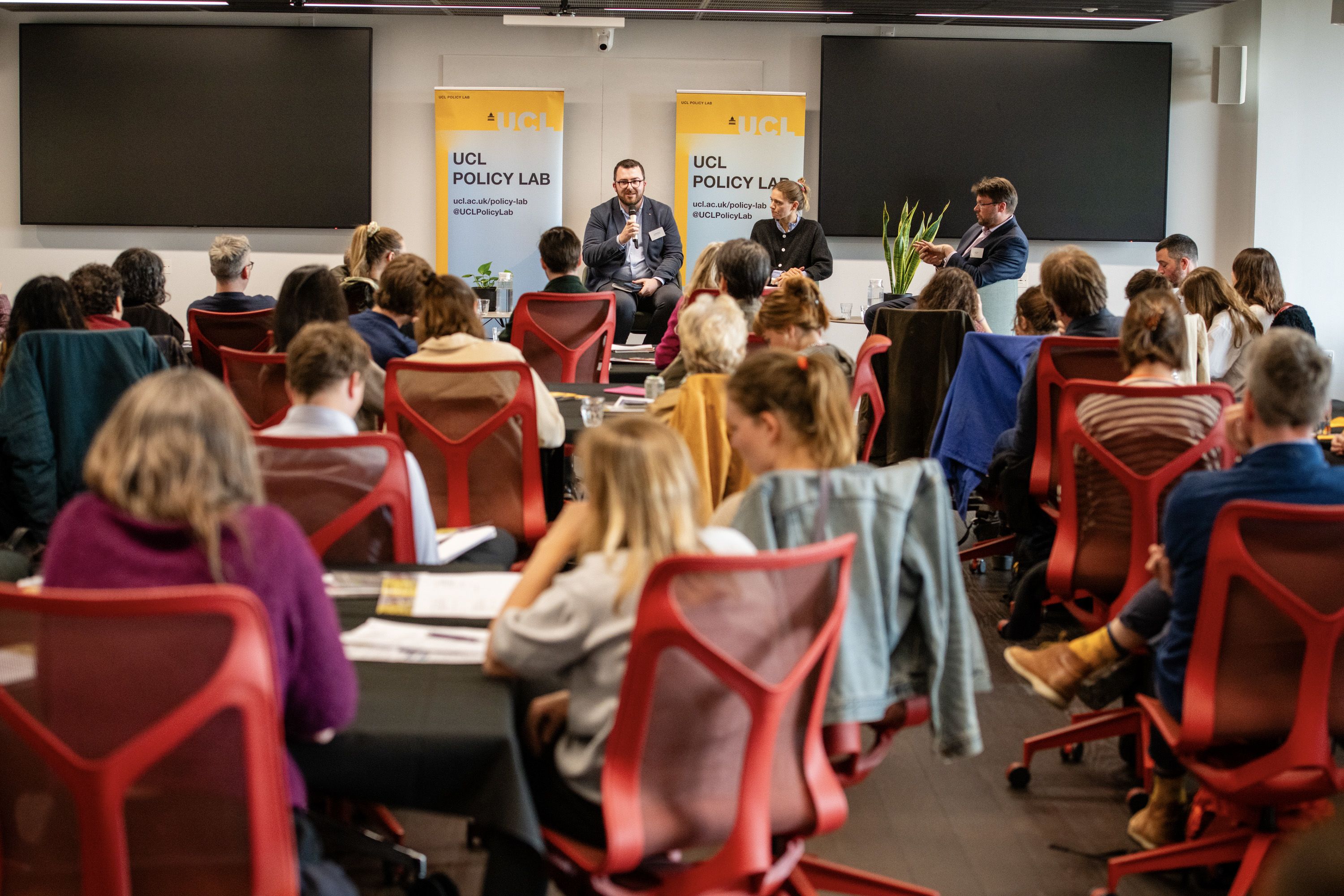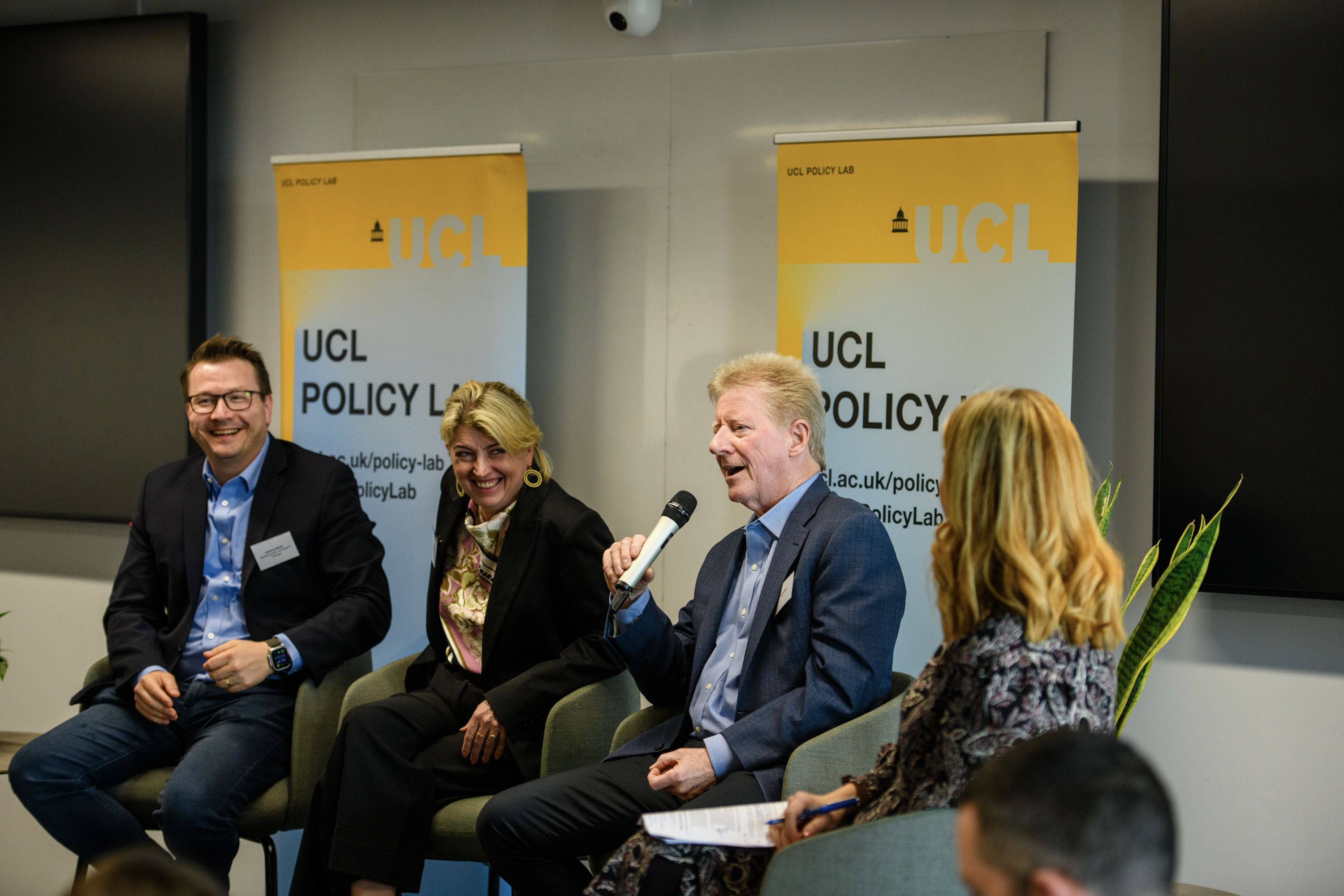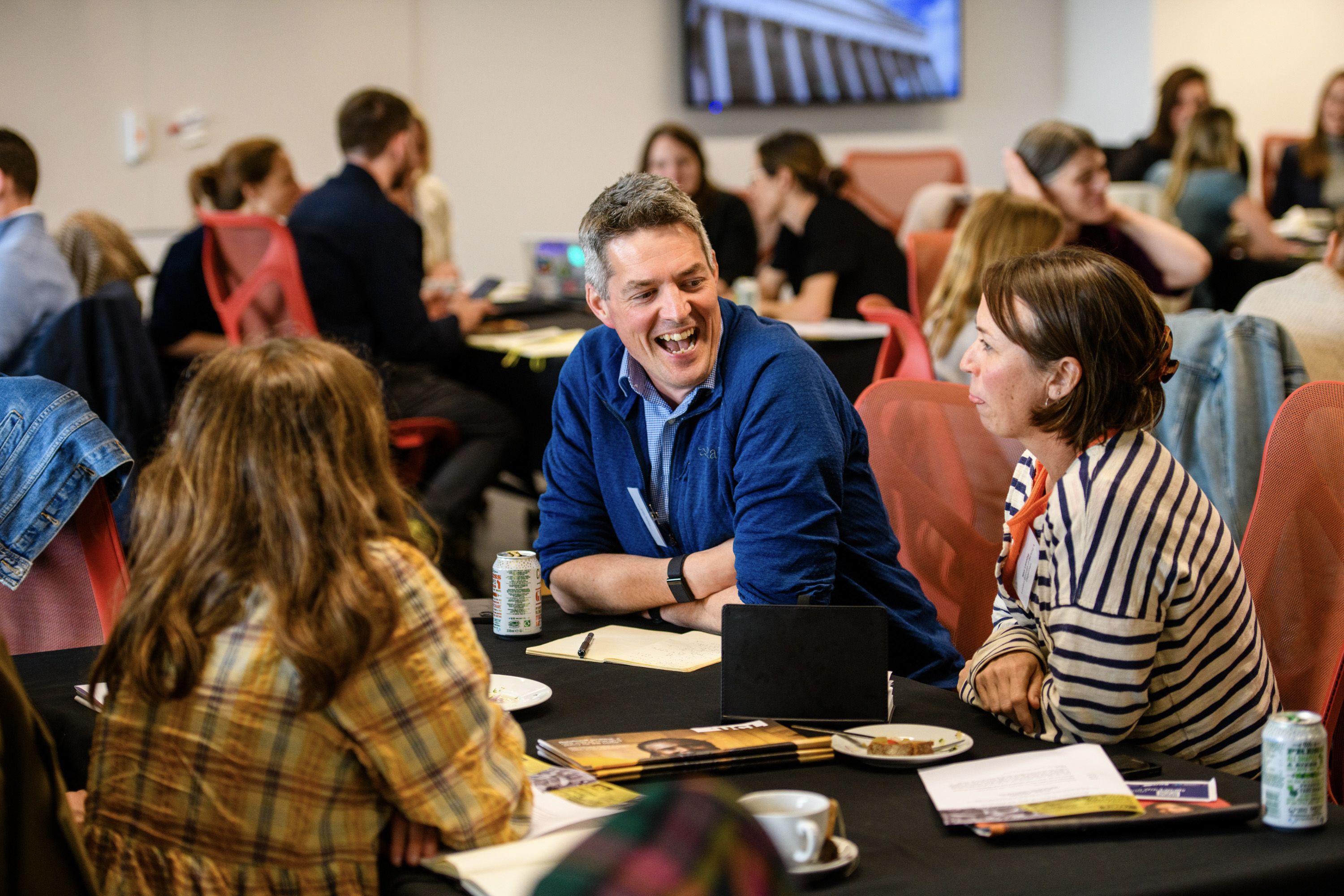A gathering for an ecosystem
Daisy Harmer, Project Manager for the Ecosystem Project, reflects on her first few weeks at the UCL Policy Lab

The May 2025 local elections and Runcorn by-election saw a historic shift away from Britain’s traditionally large parties, towards Reform UK and the Liberal Democrats. In a moment of upheaval and political uncertainty following the local elections, it felt important to bring together the ecosystem to reflect on the state of play and the appetite for change. Exactly one week after the elections, we gathered the heads of think tanks, economists, legal experts, opinion pollsters, journalists and political strategists at UCL East to digest the results and explore what comes next.
As Britain faces potential multi-party politics, it is clear that many people feel a strong sense of disillusionment with the mainstay political parties.
As UCL Policy Lab Director, Marc Stears set out in The Guardian, there is a growing need to refocus on the issues that matter to people’s everyday lives: wages, working conditions, and the quality of public services and care.
Polling conducted with More in Common showed that the Winter Fuel Allowance is an issue that unites Labour’s defectors on both the left and right of the political spectrum. Voters who switched from Labour to the Conservatives were most likely to cite the perception that Labour haven’t kept their manifesto promises. If we look to Albanese’s vision in Australia, which prioritises fairness, equality, and respect for all, we see an example of how governments can respond to the needs of their people in a way that fosters inclusion and solidarity rather than division.

It felt right to kick off our day of connection and reflection with a training session from the University of Sydney’s Associate Professor of Practice in urban geography, Amanda Tattersall.
Amanda’s morning workshop set the tone for the day’s discussions, challenging us to think ecologically about people power and how we organise around the issues that matter most to us - not as a single strategy but as an interdependent ecosystem of approaches responding to community needs.
From organising and mobilising to prefiguring and policy change, each approach has its value. Drawing on lessons gathered from community movements in Cape Town, Hong Kong and Barcelona, she reminded us that community movements thrive when strategies coexist and interact productively, rather than being forced into siloes or competition. Her call to “be a fruit salad, not a smoothie” was a playful call to action about celebrating and embracing difference, building relationships, and making space for collaboration across the political spectrum.
The afternoon brought a series of panel discussions exploring the political context from polling data and international case studies to human rights legacies and the economic realities facing the UK. Across all four panels, two common threads emerged. The first, that any roadmap to democratic renewal must start with an honest reckoning with how people are actually living and what they need to thrive. The second, the promise and hope that things can get better.
Amanda Tattersall and Henning Meyer helped us zoom out, offering a global view on populist politics. Amanda spoke about the importance of community infrastructure and public imagination, while Henning reminded us that moments of populist resurgence are often symptoms of deeper democratic drift, not the root cause. As they both made clear, what we’re seeing in Britain isn’t unique - but how we respond could be.
Francesca Klug gave a timely reminder that the 8th of May marks 80 years since Victory in Europe day – the moment when the foundation for the modern human rights framework was laid. She warned against losing sight of the past and the hard-won roots of our society. The language of dignity, equality and rights must not become museum pieces.
In the afternoon, I noticed the word ‘hope’ hand-stitched into the back of one of our panellists’ cardigans. This small, unspoken gesture seemed to capture the essence of the event – the invisible threads that bind us together, even amidst the uncertainty. In many ways, the day served as a reminder that even in moments of instability, hope and connection are key to understanding what needs to change and how we can move forward together.
This theme of hope, how we find it in times of turmoil, appeared again last night, as members of the ecosystem and wider politics gathered to hear Gordon Brown reflect at the John Smith Memorial Lecture. The former PM urged the audience and those who wished to defend democracy to be “ambassadors for hope”. Alongside his calls for us to tackle the social ills of child poverty and despotism, he called on us to act together, valuing and building a civic life that can be the foundation of a better country. Ideas which resonated with the launch of This Place Matters, our new project focusing on Social Cohesion with More in Common and Citizens UK.
As we think about the politics and challenges that lie ahead, the need to once again build a politics and policy that delivers a promise of hope seems more crucial than ever. I’m excited to be joining the team here at the UCL Policy Lab, to support the ecosystem and contribute to that effort.

